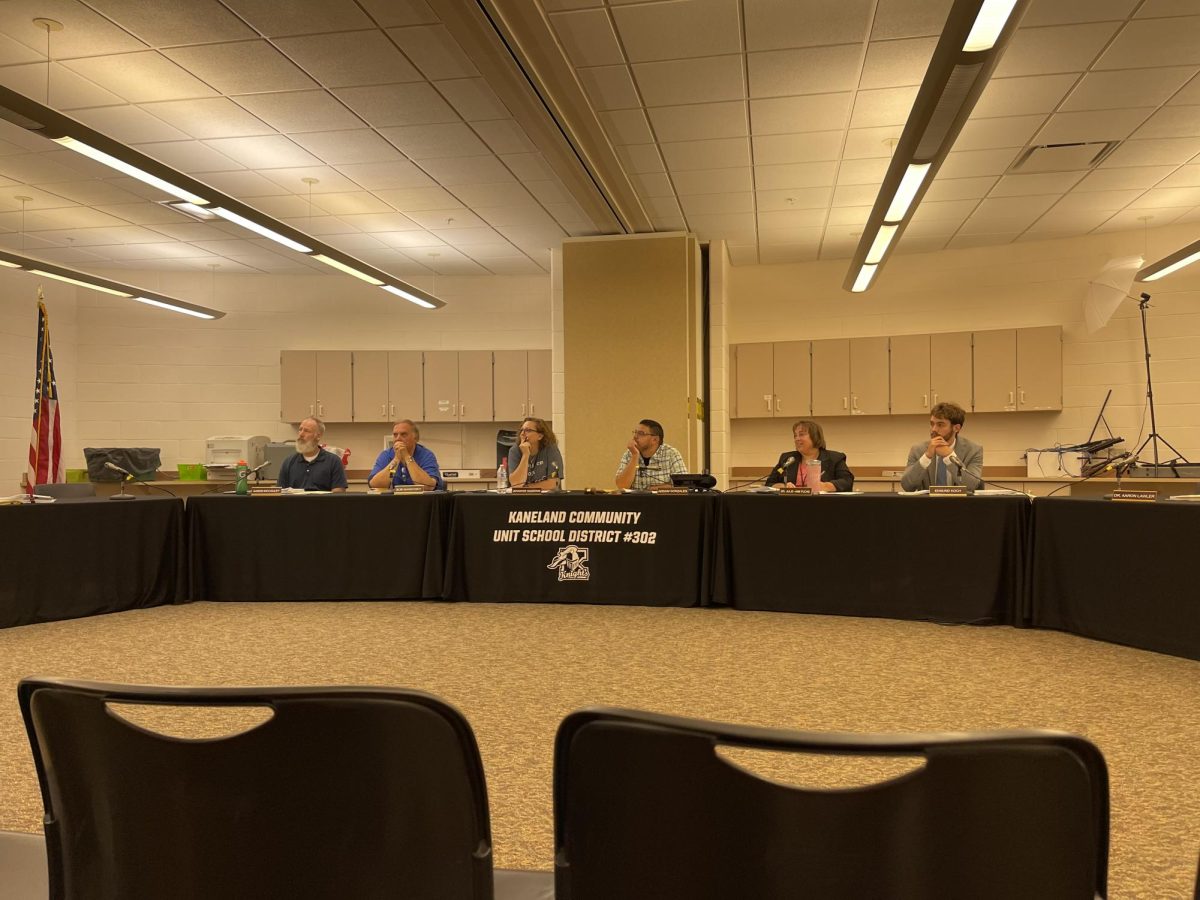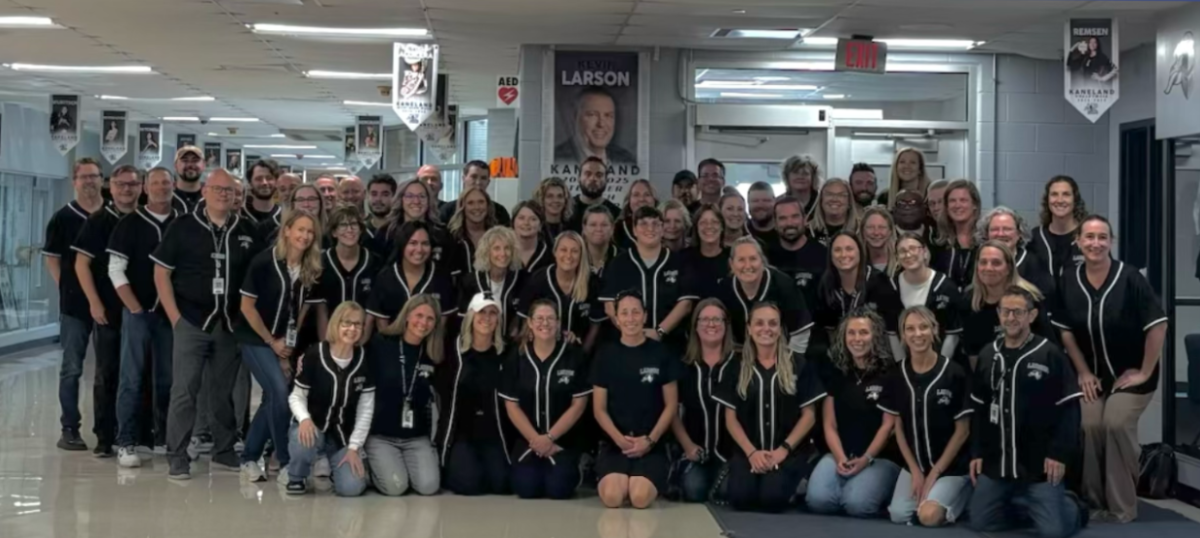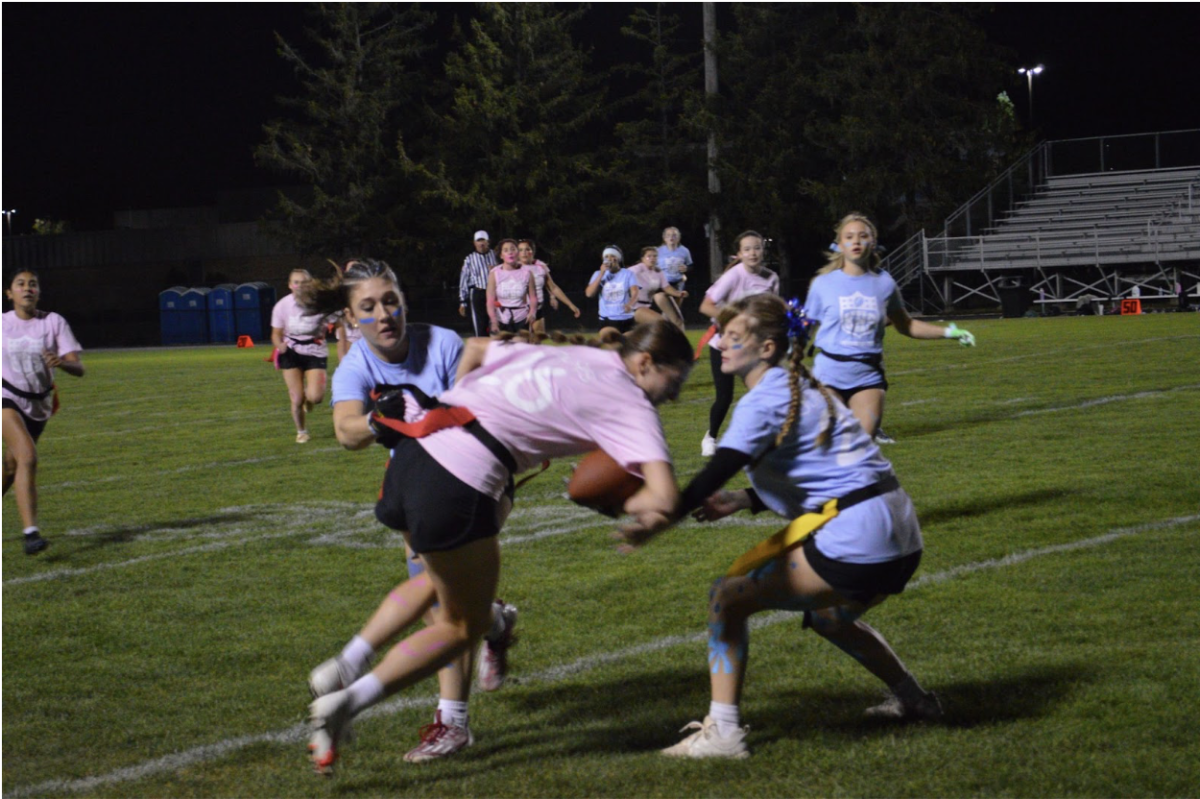On Monday, July 31, Kaneland Community Unit School District 302 hosted its regularly scheduled board meeting at 7 p.m. in the sixth-grade team room at Kaneland Harter Middle School. All board members were present except for Dr. Aaron Lawler, with Ryan Kleisner attending over a conference call. Following the Pledge of Allegiance, roll call and the approval of the agenda, the board welcomed Director of Communications David Chavez to the district.
“Effective communication is critical to building a solid and thriving school district, and I’m excited to participate in this effort as we move ahead together,” Chavez said.
The first item under new business was the discussion of the current school improvement days. Currently, the Illinois School Board of Education allows the district a waiver for two full-day school improvement days instead of one full day and two half days. The waiver expired after the 2022-23 school year, but the district is recommending to continue the waiver. These days would also apply to the Fox Valley Career Center. After further discussion, the board voted to move forward with this recommendation.
The next new business item was the two remaining capital projects, which were discussed at the May 31 board meeting. The first project would be the patching and seal coating of the south lot, west lot and bus lot at Kaneland High School. The estimated cost is approximately $500,000 and would take place in the summer of 2024. The second project would be the resurfacing of the high school track. Several board members brought up concerns about whether the $600,000 renovation would be worth it.
“If we spend $600,000 now, there’s no way we could justify tearing all that out and then try and re-spend that if the referendum does pass,” Kleisner said.
After last year’s failed referendum, the topic of the possible passing of a referendum in 2024 was brought up, which could mean an entirely new stadium. If a new stadium was built, the track would eventually get replaced. It was also discussed that the current track only has seven lanes, which is not enough to host a regional or sectional event, and even with a resurfaced track, it would still not be possible. However, District Associate Superintendent Dr. Julie-Ann Fuchs brought up that the Illinois High School Association (IHSA) is allowing schools to host with seven lanes due to not enough schools hosting. The administration recommends waiting until a referendum is passed and to move forward with the renovations to the KHS parking lots. The board passed the approval with just one vote against.
The following item under new business was the approval of an additional full-time equivalent (FTE) at Blackberry Creek Elementary School.
The recommended staffing allotment is 24:1 at the 3-5 grade levels, but currently the fourth grade classes are at 27 students per class in the three sections, which is “untenable,” according to Director of Human Resources Dr. Chris Adkins. Another FTE would make four sections of fourth grade. Vice president Bob Mankivsky brought up a concern with the ability to hire another FTE because of the current teacher shortage, but Adkins assured that it would not be a problem. The board unanimously voted to move forward with the recommendation and hire a new FTE.
The next topics discussed were the Kaneland Connects strategic plan and the School Improvement Plan for the 2023-24 school year. Directors of Educational Services Dr. Sarah Mumm and Patrick Raleigh explained the five commitments that Kaneland Connects strives for: multi-tiered system of support (MTSS), 1:1 learning, proficiency-based progress (PBP), standards-based grading and social-emotional learning (SEL). A summary was presented with how each of the five commitments are currently implemented in the district and how they will continue to be implemented in the upcoming school year.
“Our all-in common goal will be the Kaneland Connects, where we monitor each one of the five commitments through the self-reported surveys by our students in September and February,” Mumm said.
Mumm also summarized the student data on math, reading, writing and behavior in the elementary schools. This data is then looked at by the administration. Practices are reflected based on where certain areas need improvement. A summary of the data for the Rigby reading tests, I-Ready reading and math tests, writing tests and behavior reports was shown. The need for coaching, behavior support and writing support for elementary school students was discussed in conjunction with this data. Raleigh then moved on to I-Ready reading and math scores, report card data and behavior data for middle school students. The accomplishments and the needs for improvement amongst the middle school grade levels were both recognized. Raleigh then summarized the high school data gathered from grade point averages, PSAT and SAT scores, Advanced Placement data administered by the college board and behavior summary of referrals. Raleigh recognized Kaneland’s increase and the national increase in the use of drugs, specifically vapes.
Raleigh explained that this issue is “something we need to address.”
The plan is to educate and address these issues and bring in educators from a program called Rosecrance. It is a provider of behavioral health services and addiction treatment in Illinois. Raleigh also touched on the increase in physical altercations at the high school in the last year. Board member Jennifer Simmons shared her appreciation to Raleigh for recognizing the current drug problem throughout the district and getting in contact with Rosecrance.
The following topic was the Policy Reference Education Subscription Service (PRESS), which provides the board with a quarterly suggested policy update. After a short discussion, the board approved the policy update from PRESS.
The final new business topic was the approval of the three donations made to the district in the last month. The donations consisted of a $1200 donation from SignFX, which provided new graphics for the cross country container, a $1500 donation from Kelsey Flanagan for the Hoops for Cure Foundation and a piano from Chapel Street Church for the band room. The board voted to move forward with the approval of the donations.
Fuchs then recognized senior Katie Pfotenhauer, as she will be the new student representative starting with the Aug. 14 board meeting.
Lastly, four public comments were made. Parents of track and field and cross country athletes voiced their concerns about the current condition of the track and the continuous disregard for resurfacing it. Parent Anthony Moreno, whose son is on the KHS track and field team, explained his frustration with the board’s priorities.
“The kids have been running on that 30-year-old track, and they still win. They go out there and give it everything they got, and we aren’t giving them what they deserve,” Moreno said.
Parent Sarah Nosek has had four children involved in the cross country and track and field programs. She explained the track was previously resurfaced in 1997, and while repairs have been made, tracks are supposed to be completely resurfaced around every seven to 10 years.
“It’s not just the cracks and the holes. The surface loses its spring and return force. Our students are more likely to get stress fractures and other impact kinds of injuries. That type of injury can take an athlete away from the sport they love for a whole season or even longer,” Nosek said.
Community member and former parent of track and field and cross country athletes Sheila Albano also expressed her concerns with the track, along with concerns about the Sugar Grove Crown Development project. This project plans for a 760-acre community located at the crossing of Interstate 88 and Route 47. She encouraged the board to find out how this project will affect the communities, buses and kids.
The next board meeting will be held on Monday, Aug. 14.













